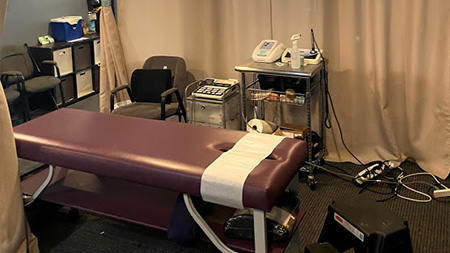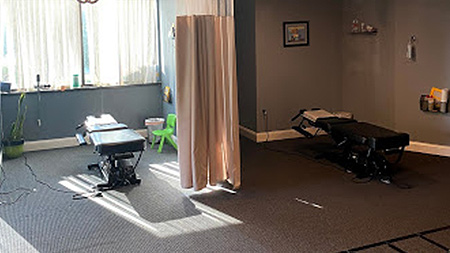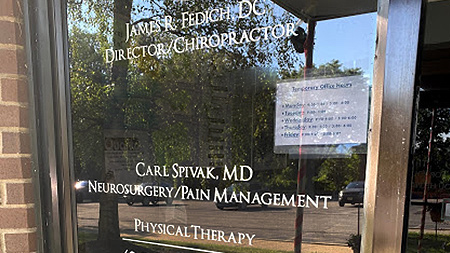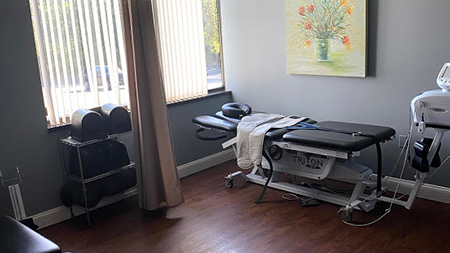What is Frozen Shoulder?
Hey, everybody. Dr. Fedich here, at Village Family Clinic, Clinic Director. Here to talk to you today about frozen shoulder and medical terminology for that is actually adhesive capsulitis. Really fancy word. We got our little skeleton buddy here to show you a little bit what's going on. So, the shoulder joint here is a ball and socket joint. So, it means the end of the humerus or a long bone of the arm here has a ball that attaches to the shoulder joint, glenohumeral joint. And it goes in that ball, it goes into that socket. And what that allows us to do is really move that shoulder around a lot. So, the shoulder's the most flexible joint of the human body, if you realize it's the only joint you can move around 360 degrees. Your hipdoesn't do that, the elbow doesn't do that. It moves a lot.
But due to all that movement, there's a lot of instability. So, the more a joint can move, the more unstable it can be. And that's what happens with the frozen shoulder or with the shoulder in general. So what a frozen shoulder, adhesive capsulitis means is basically the ball gets stuck into the socket, it's not able to move. Now what we found, it's called an idiopathic condition, meaning it's not usually from an injury, a fall. Most of the time we hear patients talk about they fell asleep and they woke up with it or it started creeping up and started freezing up on them over time. So, it's not usually due to trauma and injury, just something that happens. And originally, we really didn't know why it happened. In the last few years, we found there's usually a reason for it, so a lot of them are actually related to the neck.
So, the nerves come out of the neck and go through that shoulder and a lot of times there's a neck problem that could be affecting the shoulder. There's also a lot of muscles in here like your trapezius muscle that's pulling on the shoulder joint and that's why I made this video. We just had a patient the other day, she has stenosis, some issues in her neck, never had a shoulder problem. The neck MRI doesn't look great and what's happening is the muscles are pulling so much on the shoulder that we're guarding it and it's causing it to freeze up on her. So, if we clear up the neck, the shoulder will clear up. You can also have a lot of endocrine disorders like diabetes and things can cause the shoulder to freeze up due to some change in the body as well. But what we found is a lot of times the problem is not actually, in the shoulder, a lot of times in the neck or in the neck muscles or the muscles around the shoulder.
Very, very few times there are actually a problem with the shoulder joint. Most of the time this can be treated conservatively. Once in a while and I've done a lot of these where we have to actually put the patient on anesthesia and break up those adhesions, but that's 1 out of 10, if not 1 out of 20. So, 9 out of 10 you know 11 out of 20, or is it 19 and 20 or so we can fix conservatively. So, that's a little bit about frozen shoulder. If you think you have frozen shoulder, it's not moving quite well, come on down and let one of us take a look at it and we'll see what we can do to help you feel better without any kind of drugs or surgery. Give us a call. (908) 813-8200.













